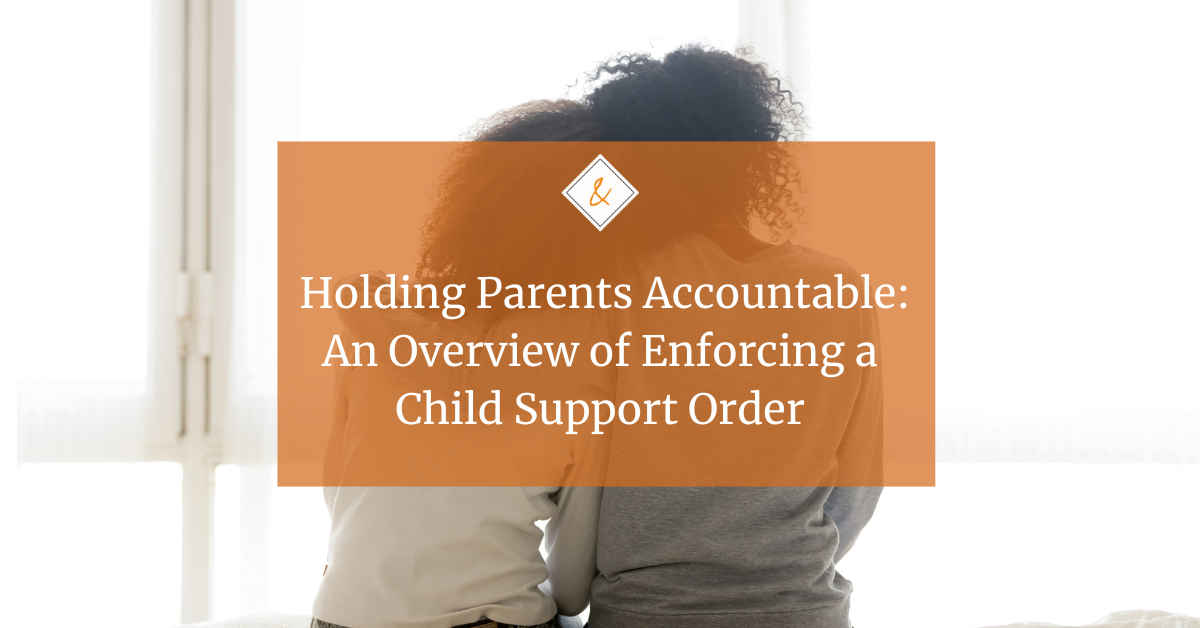You are separated from your children’s mother or father, or you may be already divorced and you are thinking about how you can pick up the pieces of what was likely a bad relationship and rebuild your life. You may have found a new job in another state or want to move back to your hometown where your family is located and where you have a support system. Can you move with your children?
In Pennsylvania, if a parent seeks to relocate with a child, he or she must have the agreement of the other parent or permission from the court allowing the relocation. “Relocation” is defined in the custody statute as “a change in a residence of the child which significantly impairs the ability of a non-relocating party to exercise custodial rights.” If one parent wants to relocate from Philadelphia, Pennsylvania to Cherry Hill, New Jersey and the other parent has custody of the child every other weekend and one night a week for dinner, arguably, this is not a relocation because the nonrelocating party’s exercise of his or her custodial time will not be significantly impaired by the move. However, if one parent seeks to move to California, there is no question that this will significantly impair the other parent’s ability to exercise his or her custodial rights. There has been, and will in the future, be litigation over whether a proposed move is a relocation or not, especially when the underlying custody schedule will not be altered. The best practice is to comply with the relocation statute by completing and serving the notice of relocation (as discussed below) with a note preserving the claim that the move is not a relocation because there is no significant impairment.
In order to get the ball rolling, the parent seeking to relocate is required to notify every individual who has custody rights to the child that he or she is seeking to relocate. The Notice must be sent by certified mail, return receipt requested to the other parent (or other person who has custody rights) no later than 60 days before the proposed relocation or the 10th day after the date that the individual knows of the relocation, if the individual did not know and could not reasonably have known of the relocation in sufficient time to comply with the 60-day notice requirement and it is not reasonably possible to delay the date of the relocation so as to comply with the 60-day notice. It is very important that the party seeking to relocate provide the required notice before moving (and not move until consent or court approval has been obtained) because if the notice is not given, the court can consider a failure to provide notice as a factor in making its decision on the ultimate question of whether the permanent relocation will be permitted. The court can also order the children to be returned, require the party who relocated to pay the reasonable counsel fees and expenses of the other party, and hold the party in contempt if permission is not granted.
The following information must be included in the Notice:
- The address of the intended new residence.
- The mailing address, if not the same as the address of the intended new residence
- Names and ages of the individuals in the new residence, including individuals who intend to live in the new residence.
- The home telephone number of the intended new residence, if available.
- The name of the new school district and school.
- The date of the proposed relocation.
- The reasons for the proposed relocation.
- A proposal for a revised custody schedule.
- Any other information which the party proposing the relocation deems appropriate.
- A counter-affidavit which can be used by the other parent to object to the proposed relocation and the modification of a custody order.
- A warning to the nonrelocating party that if the nonrelocating party does not file with the court an objection to the proposed relocation within 30 days after receipt of the notice, that party shall be foreclosed from objecting to the relocation.
It is important for the party seeking to relocate to do their homework and make sure he or she has the information necessary to complete the Notice, including thoughtful and thought out reasons for wanting to relocate and how the move will improve the lives of their children and not just their own. He or she should get information regarding the schools the children will attend, the activities available to them in the new city and be prepared to propose a revised custody schedule to give the non-relocating parent as much time as possible given that the move will interfere with the existing custody schedule.
If the other parent objects either to the proposed relocation or modification of the custody order he or she must complete the Counter-Affidavit Regarding Relocation, noting the objection. The objection must be filed with the court within 30 days of receipt of the proposed relocation notice and served on the other party by certified mail, return receipt requested. If there is no objection (and proper service of the Notice), it will be presumed that the other party consents to the relocation. The party seeking to relocate must then file a petition to confirm the relocation and modify any existing custody order.
If there is an objection, the court will hold an evidentiary hearing to determine if the relocation and modification of the custody order is in the best interests of the children. In determining whether to grant a request for relocation, the court is required to consider both the 10 relocation factors set forth in 23 Pa.C.S.A. § 5337 (h) as well as the 16 factors for awarding custody pursuant to 23 Pa.C.S.A. § 5328(a). The relocation factors consist of the following:
- The nature, quality, extent of involvement and duration of the child’s relationship with the party proposing to relocate and with the nonrelocating party, siblings and other significant persons in the child’s life.
- The age, developmental stage, needs of the child and the likely impact the relocation will have on the child’s physical, educational and emotional development, taking into consideration any special needs of the child.
- The feasibility of preserving the relationship between the nonrelocating party and the child through suitable custody arrangements, considering the logistics and financial circumstances of the parties.
- The child’s preference, taking into consideration the age and maturity of the child.
- Whether there is an established pattern of conduct of either party to promote or thwart the relationship of the child and the other party.
- Whether the relocation will enhance the general quality of life for the party seeking the relocation, including, but not limited to, financial or emotional benefit or educational opportunity.
- Whether the relocation will enhance the general quality of life for the child, including, but not limited to, financial or emotional benefit or educational opportunity.
- The reasons and motivation of each party for seeking or opposing the relocation.
- The present and past abuse committed by a party or member of the party’s household and whether there is a continued risk of harm to the child or an abused party.
- Any other factor affecting the best interest of the child.
The custody factors (some of which overlap with the relocation factors) consist of the following:
- Which party is more likely to encourage and permit frequent and continuing contact between the child and another party.
- The present and past abuse committed by a party or member of the party’s household, whether there is a continued risk of harm to the child or an abused party and which party can better provide adequate physical safeguards and supervision for the child.
- (2.1) The information set forth in section 5329.1(a) relating to consideration of child abuse and involvement of protective services.
- The parental duties performed by each party on behalf of the child.
- The need for stability and continuity in the child’s education, family life and community life.
- The availability of extended family.
- The child’s sibling relationships.
- The well-reasoned preference of the child, based on the child’s maturity and judgment.
- The attempts of a parent to turn the child against the other parent, except in cases of domestic violence where reasonable safety measures are necessary to protect the child from harm.
- Which party is more likely to maintain a loving, stable, consistent and nurturing relationship with the child adequate for the child’s emotional needs.
- Which party is more likely to attend to the daily physical, emotional, developmental, educational and special needs of the child
- The proximity of the residences of the parties.
- Each party’s availability to care for the child or ability to make appropriate child care arrangements.
- The level of conflict between the parties and the willingness and ability of the parties to cooperate with one another. A party’s effort to protect a child from abuse by another party is not evidence of unwillingness or inability to cooperate with that party.
- The history of drug or alcohol abuse of a party or member of a party’s household.
- The mental and physical condition of a party or member of a party’s household.
- Any other relevant factor.
Moreover, the party proposing the relocation has the burden of establishing that the relocation will serve the best interests of the child as shown under the factors. In addition, each of the parties has the burden of establishing the integrity of that party’s motives in either seeking the relocation or seeking to prevent the relocation.
The trend seems to suggest that courts are reluctant to grant requests for relocation and the burden on the relocating party is a significant one. If you are considering relocating or the other parent is seeking to do so, you should consult with a family law practitioner to guide you through this process.



